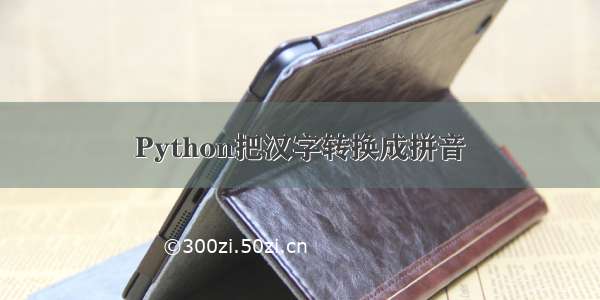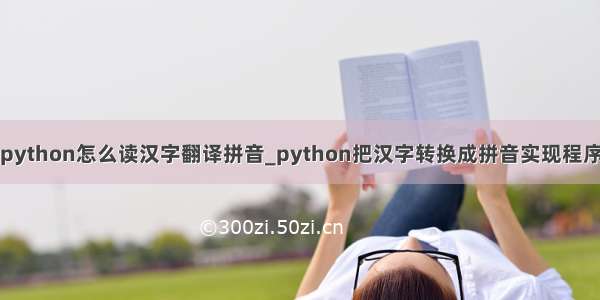
最近在使用Python做项目时,需要将汉字转化成对应的拼音.在Github上找到了一个现成的程序.
Python汉字转拼音
使用实例如下:
from pinyin import PinYintest = PinYin()test.load_word()print test.hanzi2pinyin(string='钓鱼岛是中国的')print test.hanzi2pinyin_split(string='钓鱼岛是中国的', split="-")
输出:
['diao', 'yu', 'dao', 'shi', 'zhong', 'guo', 'de']'diao-yu-dao-shi-zhong-guo-de'
其中hanzi2pinyin函数返回值是一个列表,而hanzi2pinyin_split函数在split参数为空时返回列表,不为空是返回字符串.
但程序存在两个问题,第一是当中文中夹带英文时,英文会丢失.第二则是hanzi2pinyin_split的返回值一会是列表,一会是字符串,让人比较迷糊.
例如:
test.hanzi2pinyin_split(string='钓鱼岛是中国的code123', split="")
我们期待的结果是:
u'diaoyudaoshizhongguodecode123'
但实际结果为:
u'diaoyudaoshizhongguode'
为此,在原来的程序中做了如下改写.
1.hanzi2pinyin函数修改
原来的hanzi2pinyin函数:
def hanzi2pinyin(self, string=""):result = []if not isinstance(string, unicode):string = string.decode("utf-8")for char in string:key = '%X' % ord(char)result.append(self.word_dict.get(key, char).split()[0][:-1].lower())return result
修改后的hanzi2pinyin函数:
def hanzi2pinyin(self, string=""):result = []if not isinstance(string, unicode):string = string.decode("utf-8")for char in string:key = '%X' % ord(char)if not self.word_dict.get(key):result.append(char)else:result.append(self.word_dict.get(key, char).split()[0][:-1].lower())return result
修改后的hanzi2pinyin函数可以避免中英文混合的情况下,英文丢失.
2.hanzi2pinyin_split函数修改,将返回值为统一为字符串
原来的hanzi2pinyin_split函数:
def hanzi2pinyin_split(self, string="", split=""):result = self.hanzi2pinyin(string=string)if split == "":return resultelse:return split.join(result)
修改后的hanzi2pinyin_split函数(不论split参数是否为空,hanzi2pinyin_split均返回字符串):
def hanzi2pinyin_split(self, string="", split=""):result = self.hanzi2pinyin(string=string)#if split == "":# return result#else:return split.join(result)
















